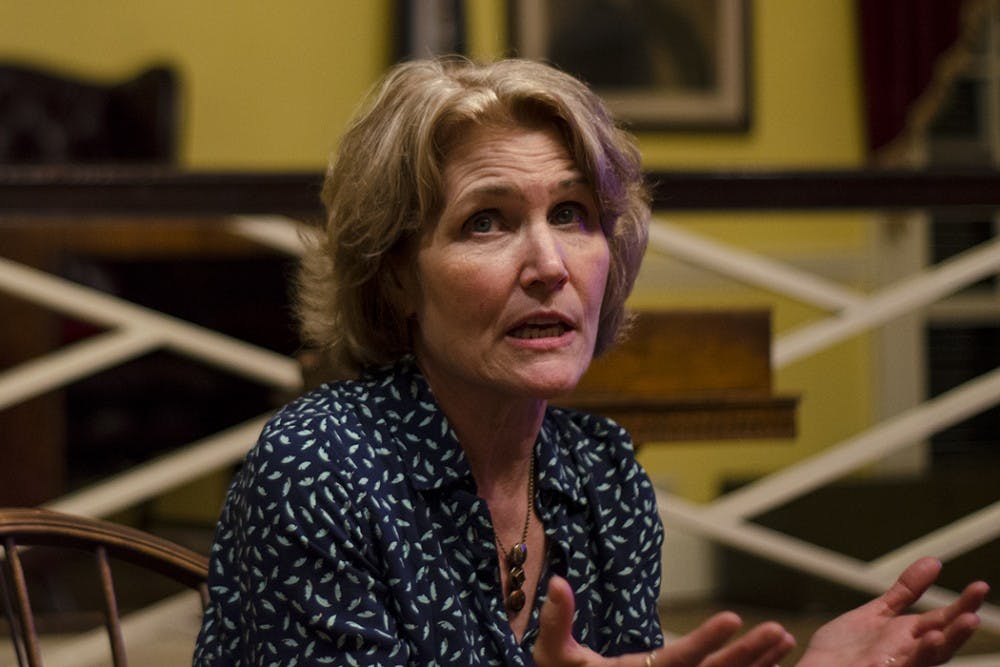In light of President Trump’s election and the establishment of Republican control over both houses of Congress, the Jefferson Literary and Debating Society held a panel Friday at Jefferson Hall to discuss the future of the Affordable Care Act. Speakers included Carolyn Engelhard, associate professor of public health sciences and public policy, and Chris Ruhm, professor of public policy and economics.
“The event was organized because we felt there was strong student interest in the future of American healthcare and that it could add to the intellectual discourse of the student population,” Grant Guan, second-year Engineering student and the Chair of the Jefferson Society Debate and Oratory Committee, said in an email to The Cavalier Daily.
Engelhard said the purpose of the ACA was to expand health coverage to include a small range of people who could not buy health insurance themselves.
“The ACA act, like a lot of legislations, has winners and losers,” Engelhard said. “Some of the winners for the ACA are the low income folks [or] chronically ill folks.”
However, since the ACA brings many people into the insurance pool, central insurance benefits will get more expensive to those not covered under the ACA subsidy. It could also mean a delay in delivering coverage.
“The biggest dollar spent on Medicaid went to the elderly and senior citizens,” Ruhm said. “Medicaid covered children up to 100 percent under the poverty line and ... It covered pregnant women. It didn’t provide a lot of coverage for adults.”
While the ACA policy includes many more services and cuts down the premium for a range of people, adults — especially healthy adults — are hurt as prices increase.
“For the first time in six years after the ACA was passed, more voters favoured keeping it or repairing it than repealing it,” Engelhard said.
Republicans in Congress would like to pass a reconciliation act of the ACA, which means only defunding pieces of the ACA that exert fiscal pressure on government. Ruhm’s list of these pieces includes “outpatient emergency services, hospitalisation, pregnancy, newborn care, mental health, prescription drugs … and also birth control and breastfeeding coverage.”
Ruhn said these services allow a healthcare system to provide full healthcare benefits, but are unfavored by opponents who think these pieces cost the government too much.
According to estimates from the Congressional Budget Office, if the reconciliation were put forward without properly planned replacement, between 20 and 30 million Americans could lose insurance coverage.
Republicans are considering four replacements for the ACA, all of which follow the conservative orthodoxy of decreasing the role of federal government in healthcare.
Ruhm gave particular notice to replacement of the especially unpopular mandate policy of the ACA, which requires every person to purchase insurance or pay a penalty. If the Republicans repeal the ACA, Ruhm explained, insurance companies would be put at risk because many healthy people will choose not to buy insurance.
For now, President Trump has said he will preserve the pieces that keep marginalised people in the insurance pool.
“If you allow any sick people into the insurance plan — to the risk pool — you’ll have to somehow get the healthy people in to balance their experience,” Engelhard said. “Otherwise, you’ll have an insurance pool with nothing but sick people and the premium will go up out of this field. In order to get healthy people into the pool, you got to help them buy it, and in order to help them buy it … You have to come with new money from the government and not increase the federal deficit.”







